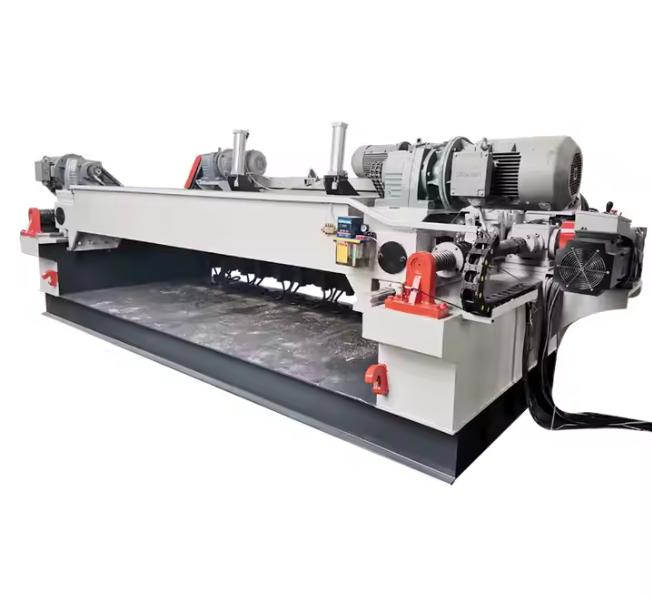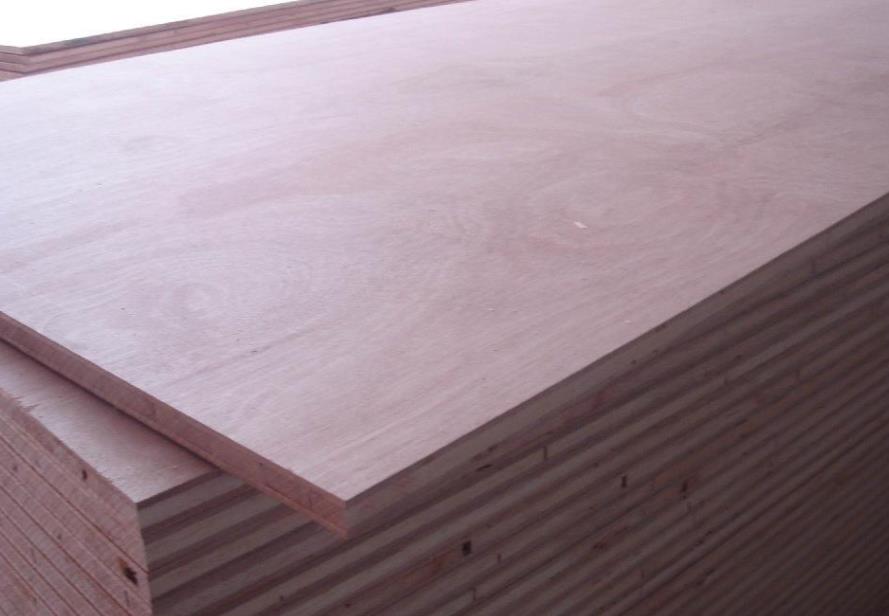The price of plywood machines is influenced by multiple factors, including machine performance, manufacturing, market, and other aspects. Understanding these influencing factors can help buyers make more informed decisions when choosing plywood machines.

1、 Machine performance and functionality
throughput
The production capacity of plywood machines is one of the key factors affecting prices. Production capacity is usually measured by the number of plywood produced per hour or the amount of raw materials that can be processed. Machines with high production capacity often have higher prices. For example, a large hot press machine that can press more plywood slabs per unit time requires a larger pressure system, a more efficient heating system, and a more robust body structure. All of these increase the manufacturing cost of the machine, leading to an increase in its price.
Processing accuracy
Plywood machines with high processing accuracy are relatively expensive. For a veneer rotary cutting machine, a machine that can accurately control the thickness of the veneer and ensure the flatness of the veneer surface requires a more precise tool holder system, high-quality cutting tools, and advanced control system. These high-precision components and systems require more investment in research and development, manufacturing, and debugging processes, so machine prices will correspondingly increase.
Degree of automation
Plywood machines with high automation have higher prices. Automated functions such as automatic feeding, automatic glue amount control, automatic detection and adjustment can improve production efficiency and reduce manual errors. Implementing these automation functions requires the integration of complex technologies and equipment such as sensors, programmable logic controllers (PLCs), and automation actuators, which undoubtedly increases the manufacturing cost of machines and thus affects prices.

2、 Manufacturing related factors
Raw material quality
The quality of raw materials for plywood machines has a significant impact on prices. Machines manufactured using high-quality steel, high-performance electrical components, and precision mechanical parts are more expensive. High quality raw materials can ensure the durability, stability, and reliability of the machine. For example, high-strength steel is used to manufacture the frame and key components of machines, which can withstand greater pressure and stress, but its cost is also much higher than ordinary steel.
manufacturing process
Advanced manufacturing processes will increase the price of plywood machines. For example, using precision CNC machine tools to process parts can ensure the accuracy and quality of the parts, but the cost of this processing method is relatively high. Similarly, special welding processes, surface treatment processes, etc., if they can improve the performance and appearance quality of the machine, will also increase the manufacturing cost of the machine, which will be reflected in the price.
3、 Market factors
Brand Value
Renowned brands of plywood machines often have higher prices. Enterprises with a good brand reputation usually have more guarantees in terms of quality, performance, and after-sales service for their products. Consumers are willing to pay additional fees for the brand's reputation. After years of market operation, these brands have invested a lot of resources in research and development, brand promotion, and after-sales service system construction, and these costs will also be shared among product prices.
Market supply and demand relationship
The market supply and demand relationship has a direct impact on the price of plywood machines. When the demand for plywood machines in the market exceeds the supply, prices often rise; On the contrary, when there is an oversupply, prices may decrease. For example, during the period of rapid development in the construction industry, the demand for plywood has increased significantly, leading to a corresponding increase in demand for plywood machines, and machine prices may rise due to supply shortages.
after-sale service
The price of plywood machines that provide comprehensive after-sales service is relatively high. After sales service includes machine installation and debugging, operation training, maintenance, etc. If an enterprise can provide timely, efficient, and comprehensive after-sales service, it needs to establish an after-sales service team, reserve sufficient spare parts, etc., which will increase the operating costs of the enterprise and thus affect the price of machines.
The price of plywood machines is the result of the interaction of multiple factors. When choosing a plywood machine, buyers should comprehensively consider the performance, manufacturing factors, and market factors of the machine, weigh the relationship between price and their own needs, in order to achieve the best purchasing effect.
 Working Principle of Wood Spind
Working Principle of Wood Spind
01 January,1970
 How to maintain the wood veneer
How to maintain the wood veneer
01 January,1970
 New glue technologies for plywo
New glue technologies for plywo
01 January,1970
 What is the Veneer Drying Equip
What is the Veneer Drying Equip
01 January,1970
 How to evaluate the production
How to evaluate the production
01 January,1970
 What is the yield rate of eucal
What is the yield rate of eucal
01 January,1970